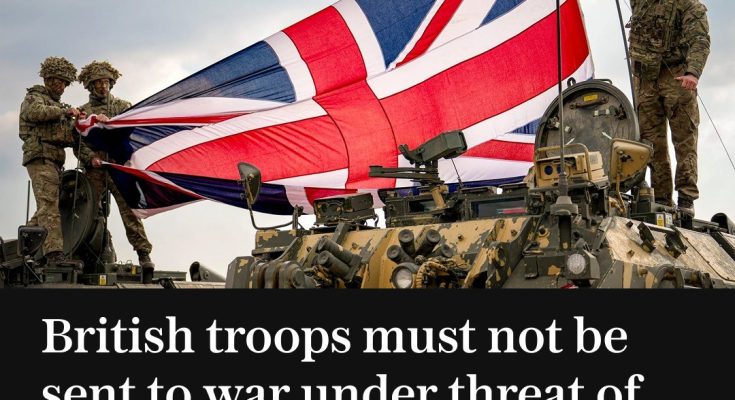After the warfare come the decades of lawfare
It should be borne in mind that derogation does not mean a free-for-all. The UK military would still be bound by the Geneva Conventions and certain rights such as the right to life and the prohibition of torture and slavery are non derogable anyway.
The alternative would be to the UK could ensure that military operations are conducted within a legal framework that carefully balances ECHR obligations with the realities of war. Courts (especially the UK Supreme Court and Strasbourg) tend to give states wide margins of appreciation during armed conflict. But we should only do so with our eyes wide open to the risk of malevolent forces seeking to manipulate the situation. There are often those who would seek to rewrite history in the courts, or to use them simply for financial gain, as with the disgraced lawyer Phil Shiner. The legal history following the Belfast Agreement offers a stark warning to any soldier.
Other nations have often derogated. The Ukrainians, for example, have already derogated from parts of the ECHR because of the war. France and Turkey have robustly derogated from the ECHR in recent times (France after the terrorist attacks from 2015 to 2017 and Turkey after the failed coup attempt in 2016). Indeed, not only did France robustly derogate, but it also then enshrined those derogations in mainstream law.
The UK has only ever sought modest derogations. This time we must watch what France does and make sure that we are in step or it will, once again, be our servicemen and women who will suffer for decades thereafter.
As one Northern Ireland veteran dryly noted recently: “they sent us to Ulster as peacekeepers and they are still investigating us 50 years later.”
Colonel Tim Collins is a former British Army officer. He served with the SAS and also as commanding officer of the Royal Irish for the invasion of Iraq in 2003, when his before-battle speech to his soldiers made headlines around the world




Defense Secretary John Healey’s recent decision against a derogation from the European Convention on Human Rights (ECHR) to cover any British troops deployed to Ukraine – a decision made on the basis that our troops would not be fighting but providing training – has a grim echo in history. It was an earlier Labour defense secretary, John Reid, who deployed troops to Helmand Province in Afghanistan and suggested that they might leave without firing a shot. With that example in mind it would perhaps be wise to reconsider.
I do not say this lightly. For the UK to derogate would be legally risky and potentially politically damaging. However, given the myriads of legal processes that have taken place, are ongoing or are now being prepared against British service personnel resulting from previous deployments including Northern Ireland, Afghanistan and others, it would be only sensible. The UK has shown itself to be vulnerable to what has become known as “lawfare” and the government has shown itself to be less than supportive or sympathetic to those it called upon to undertake these dangerous missions.
The UK has derogated before – notably during the Troubles in Northern Ireland and in limited forms during other military operations (Iraq and Afghanistan). More recently in 2016, the UK proposed derogations for future foreign deployments to protect soldiers from being sued under the ECHR – but this was eventually softened. In the context of Ukraine, if the UK were to operate directly in Ukraine (currently we train Ukrainian forces abroad) the government must consider the potential for provocation or mission creep of the sort that saw our involvement in Afghanistan escalate from peacekeeping to a shooting war.